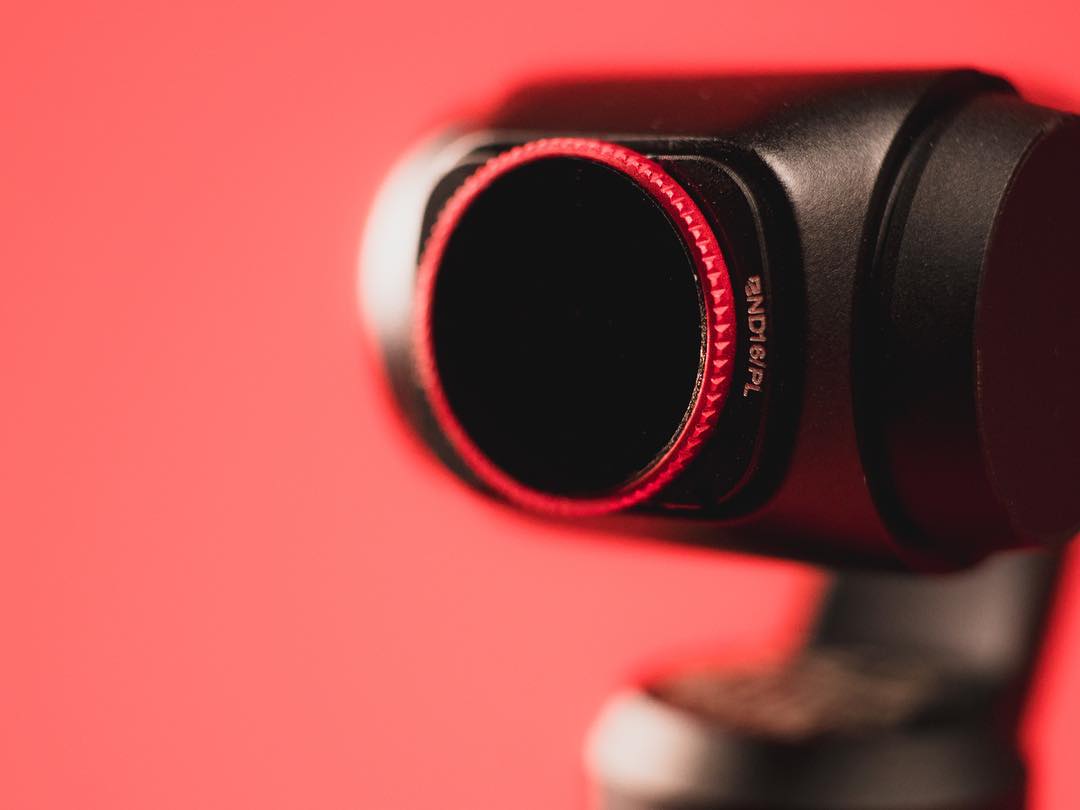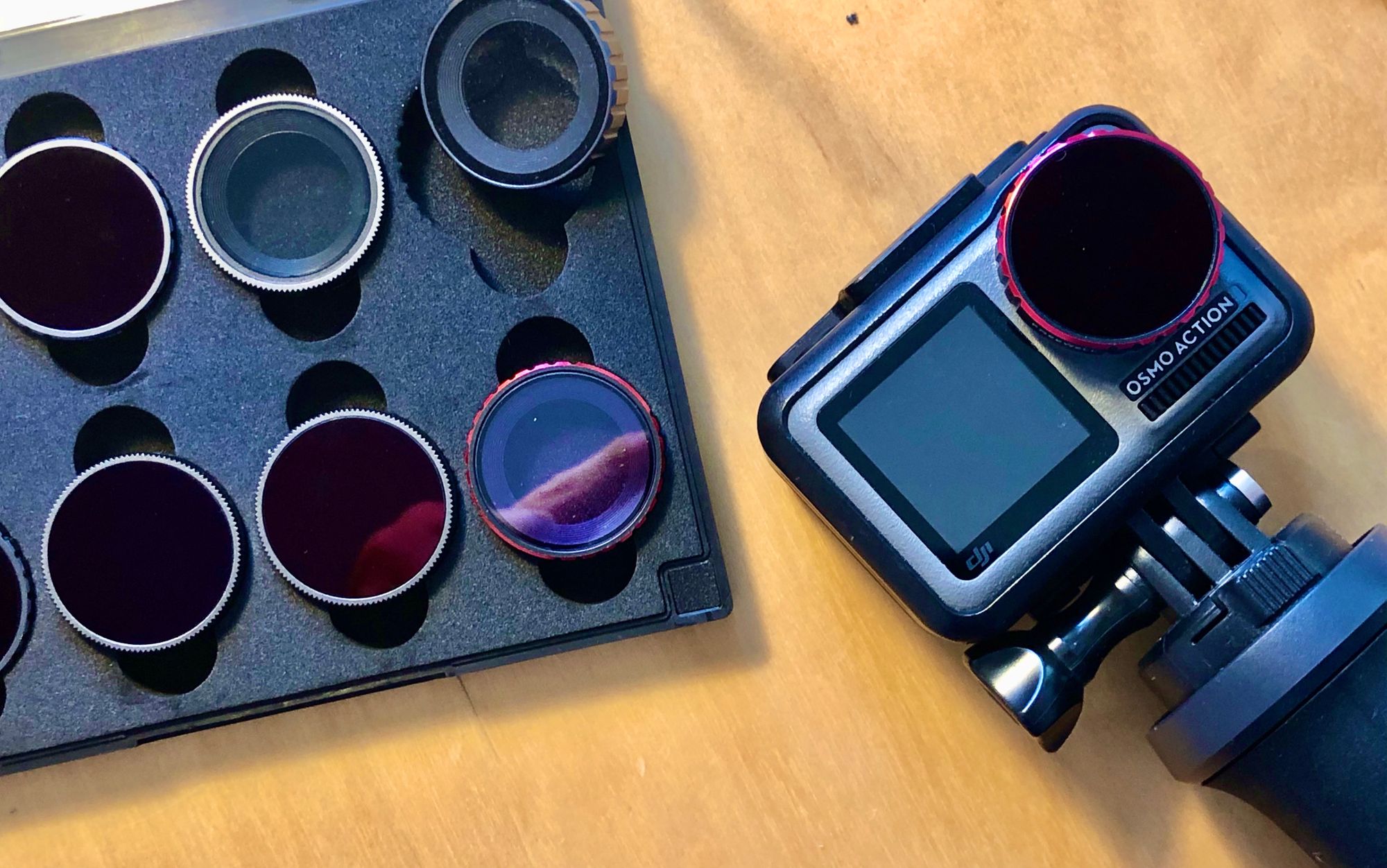
Review: Freewell Filters for the DJi Osmo Action
An action cam with filters? Is that even a thing. Well, yes. And the Freewell Filters for the Osmo Action make it much more useful.
It seems almost cruel of DJi to go after GoPro in their key market — action cameras — after the US company crashed out of DJi's area of expertise. But that's what they did earlier in the year, with the release of the Osmo Action. Its key selling point over the GoPro is the front-facing screen to complement the back screen. And yes, it makes a difference. But not enough to completely sell me on the product.
But there is another one: really easy to switch lens protectors - which means that filter makers can easily create filters for the device. And that's exactly what Freewell Gear have done - and they sent me a few to test.
But that proved harder than I was expecting. In fact, I was unable to review the filters for a month or so.
Why? Well, it all comes down to some over-enthusiasm from DJi in attaching the lens cover in the first place
Coming unscrewed
This is what should have happened: You simply unscrew the existing lens protector that comes with the device, and screw the replacement in. Simple.
Well, that's the theory, at least.
Sadly, the reality turned out to be rather trickier:
The word on the grapevine (well, Reddit) is that newer Osmo Actions don't have this issue, but just in case, you can grab the tool I used on Amazon for a few quid.
And once you have it working, it's actually ridiculously easy to change filters. To my mind, this (and the front facing screen) are the big advantages the Osmo Action have over the GoPro Hero 7. That's a subject for another time, though - possibly in the autumn when the Hero 8 should be out.
The Value of ND Filters
Why would you want to use ND filters, though?
It's all about shutter speed. Action cameras adjust their shutter speed based on available light. To stop the video being over-exposed, they shoot at very high shutter speeds in bright light, which make the videos properly exposed - but every frame very clean and crisp. In some cases, that's too crisp to people's eyes. A bit of blur in motion makes the video feel more (Lord, I hate this word) cinematic. That blur is both an indicator of quality (sub-consciously, at least) and a contextual indicator of speed and movement.
My daughter volunteered to assist me in demonstrating this, alongside some other tests at a local nature reserve:
So, yes, you can clearly see the difference once you know to look for it. Would most people notice, if you didn't point it out? No. It's not world-changing, but it creates a distinctly different feel that affects people on a sub-conscious level more than a conscious one. We associate this sort of blur with cinema, and other high-quality video, because that's how we experience it — so it suggests quality to the viewer. (This sub-conscious effect is why some people shoot at 24fps even for the web, where the broadcast frame rates don't apply.)
The blur also emphasizes the motion, which is useful in your storytelling. And that's the point of this kit. It broadens your range of storytelling options when working with this action cam.
Polarising Opinions
The polarising filters are more obvious in their effect. Their ability to cut glare and deal with reflections has long made them a favourite of still photographers, and getting to use them in video as well is a real boon. I spent a while on the west coast of France last month, and the polarising filters leds to some epic photos:
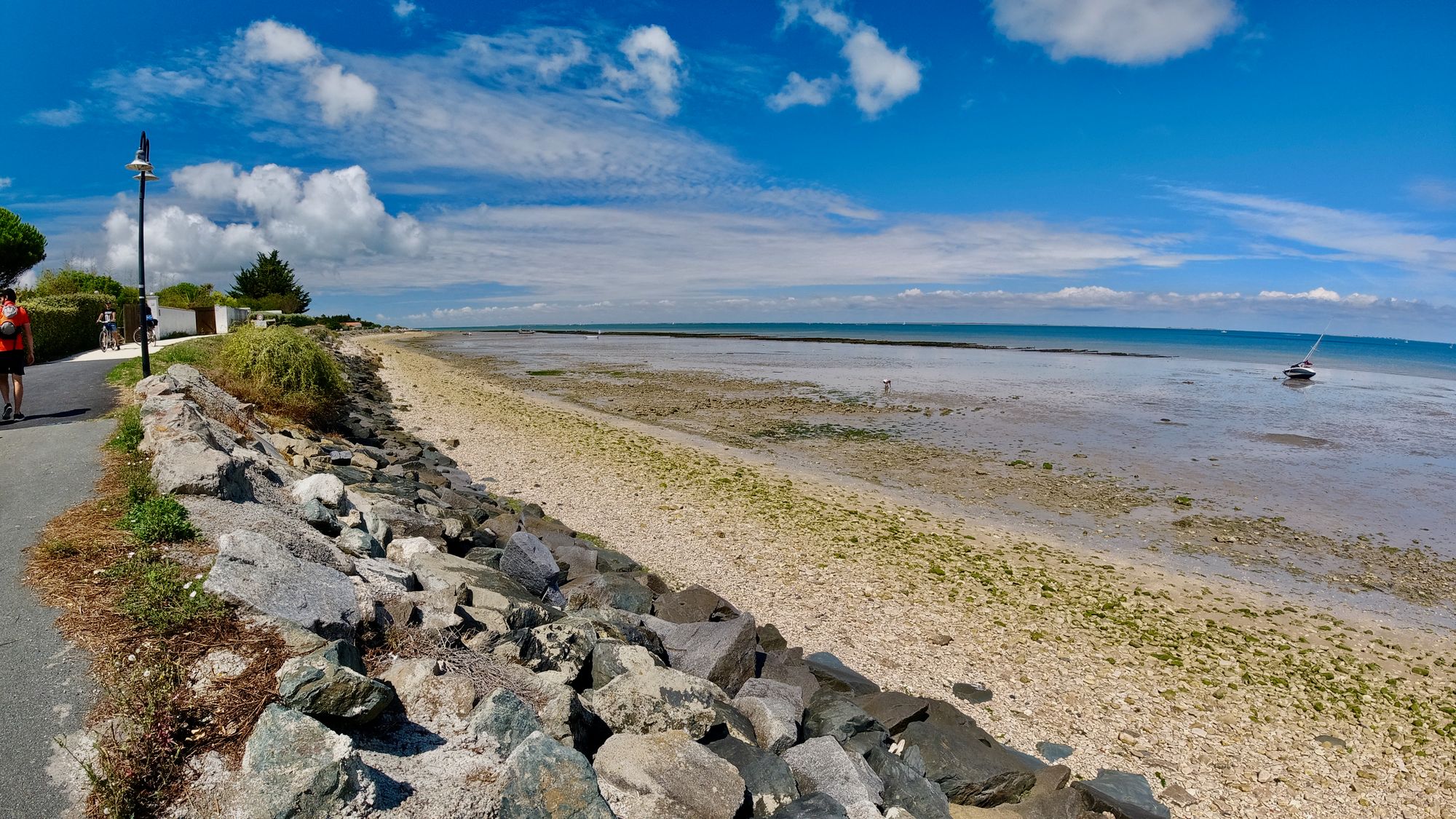
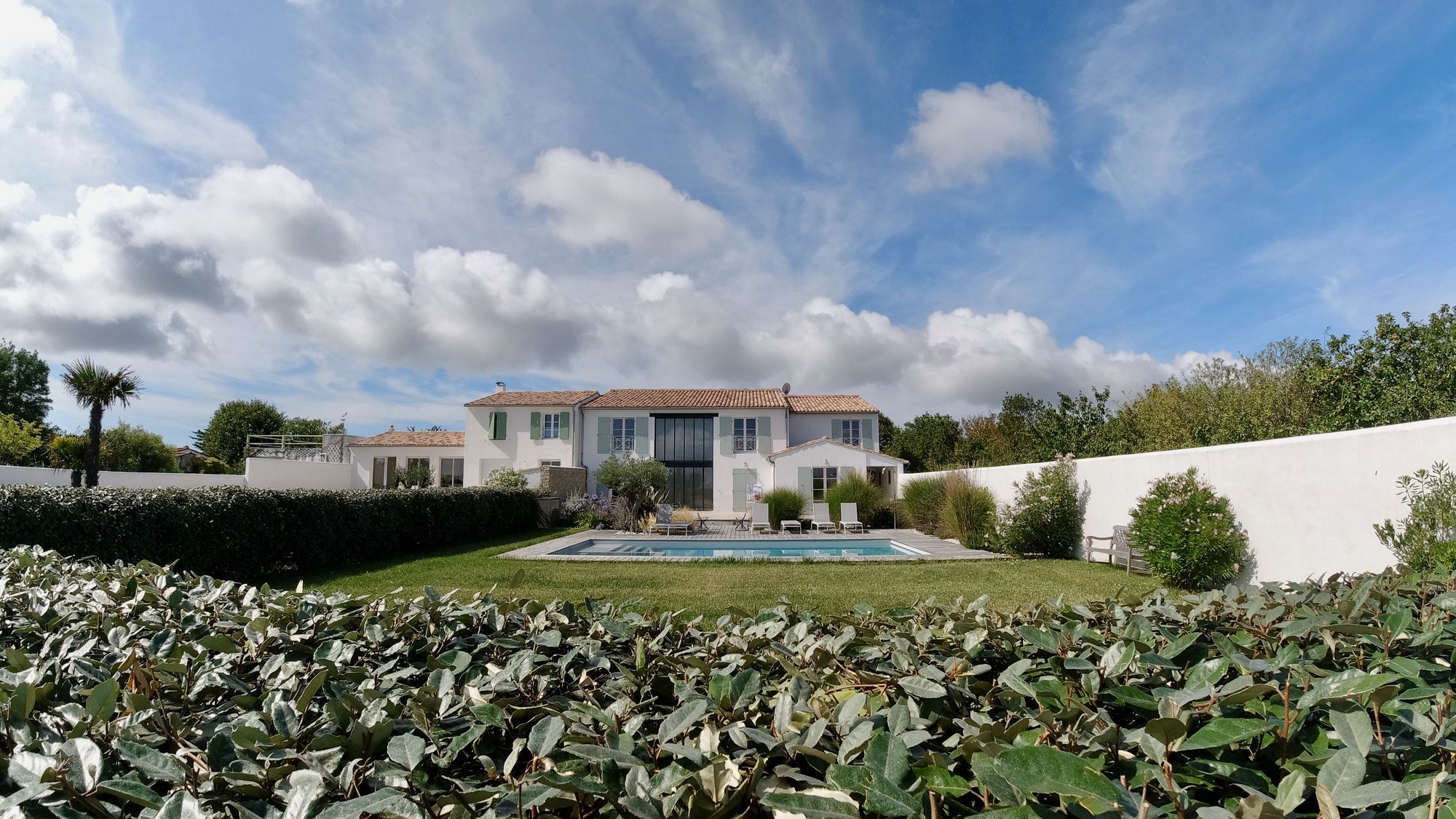

Another useful tool in the toolbox for this device.
Boxing clever
Talking of boxes, look at this:
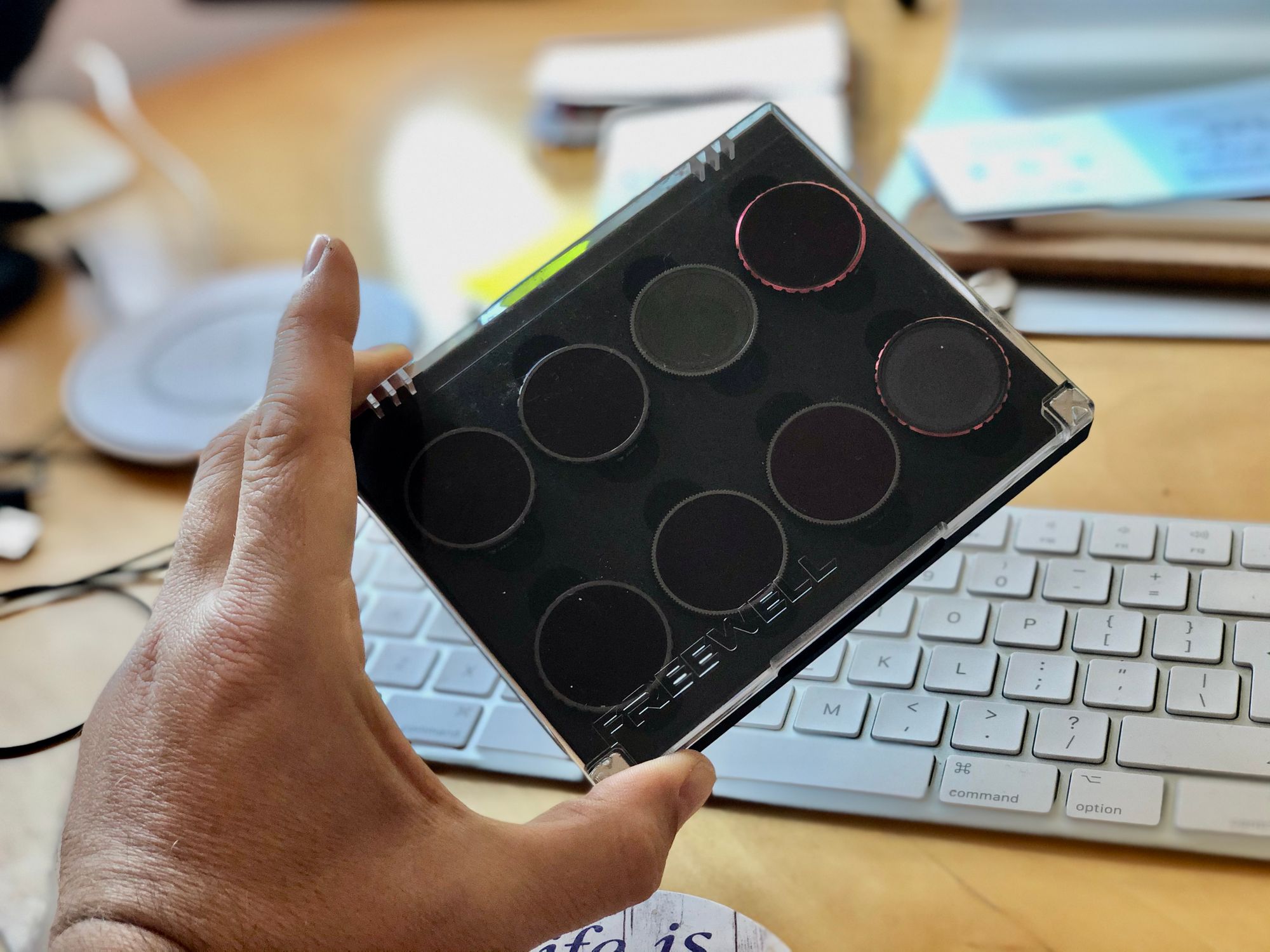
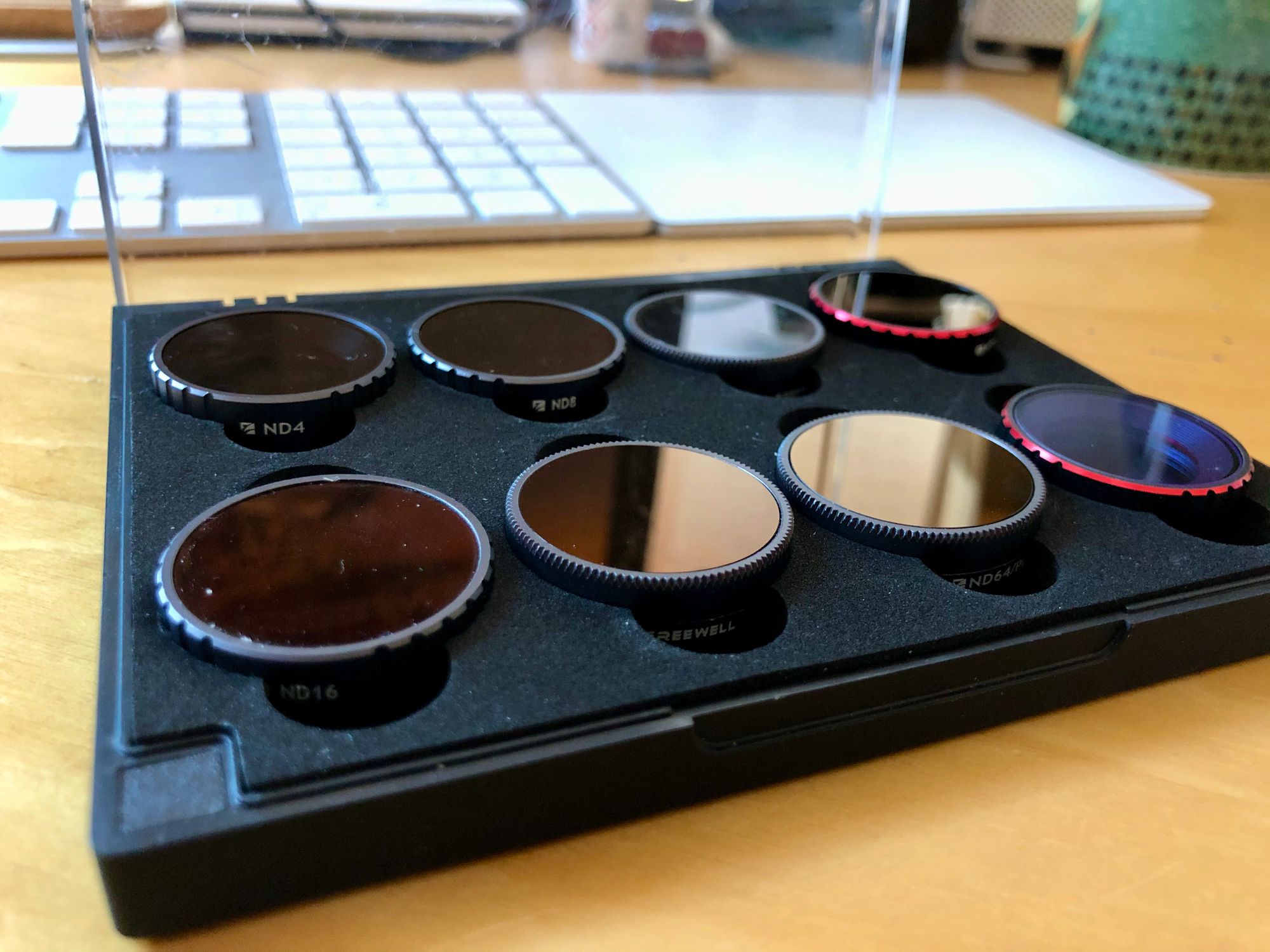
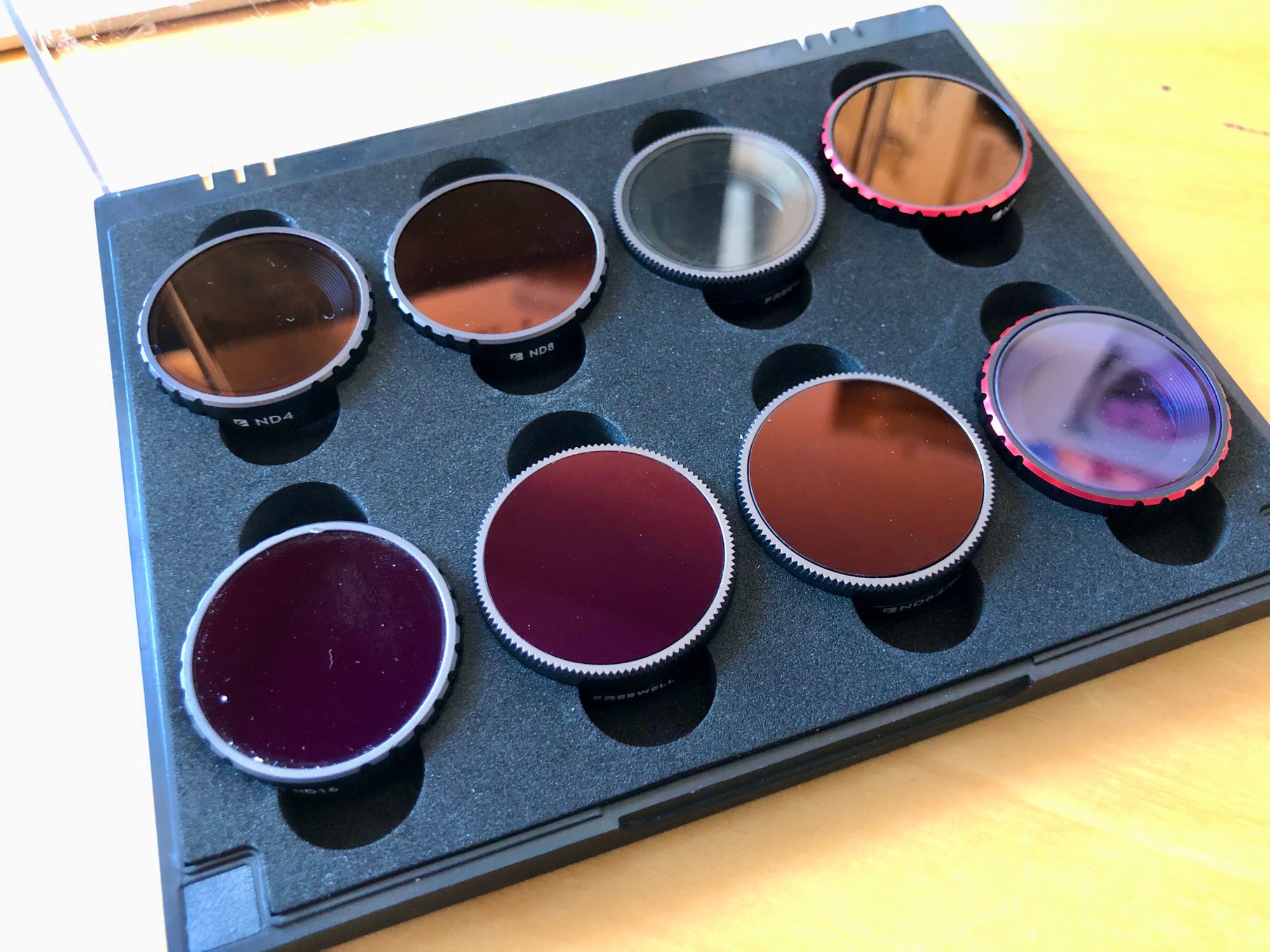
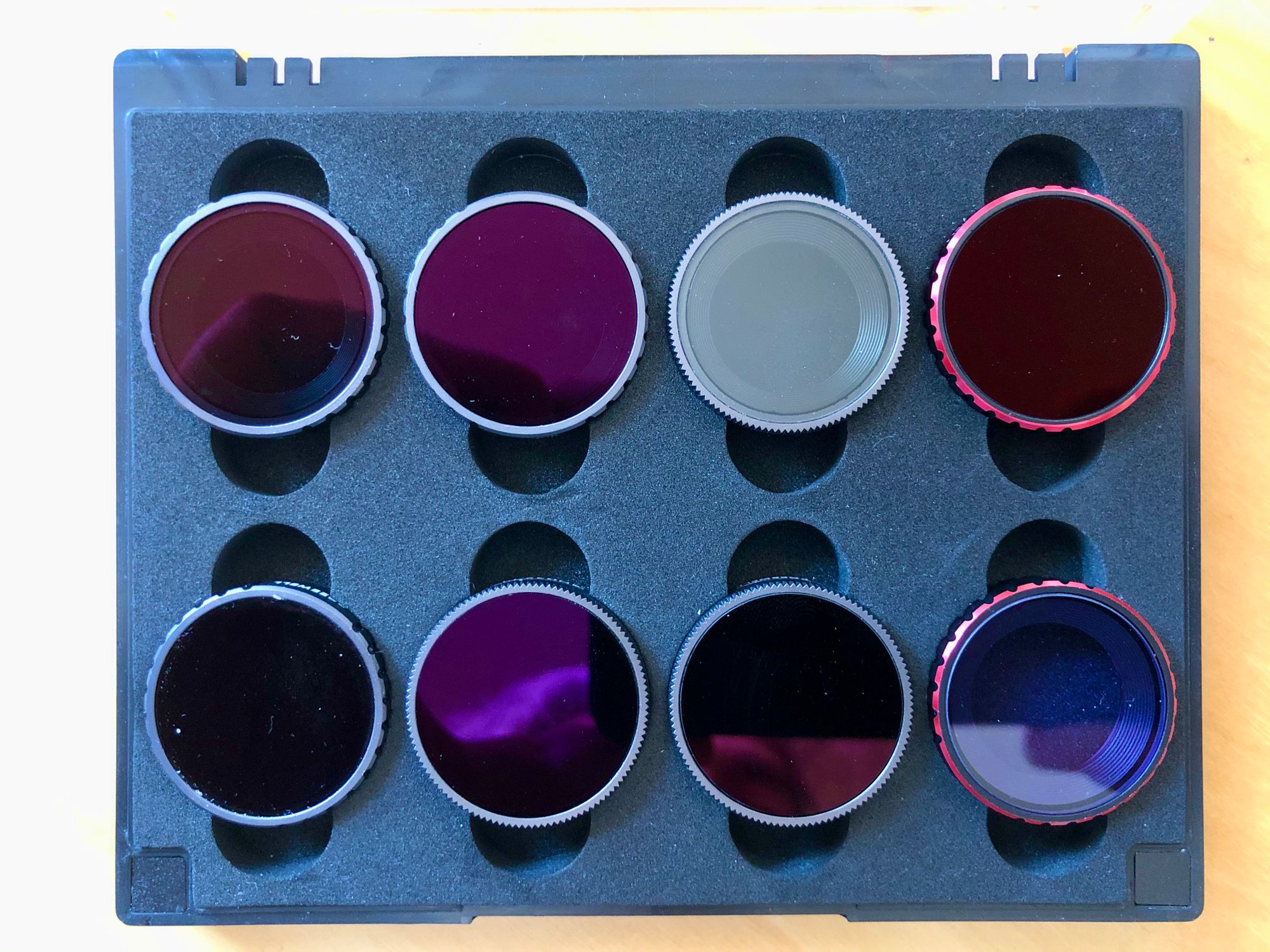
These filters come in nice, robust boxes. I feel quite happy throwing them into my kit bag for a long walk, and know that they'll be safe at the end of it. After all, what use would fragile filters be on an action cam? Freewell states that they have a scratch-resistant coating, but I haven't directly tested that. Certainly the hydrophobic coating works well for the couple of sea swims I tested them on.
Conclusion
In essence, this kit makes the Osmo Action a more versatile tool than it is out of the box. And for a device that's robust enough to take places you wouldn't with your phone, or more expensive cameras, that's a boon to the serious video journalist.
Filters under test
All filters provided by Freewell for testing purposes.
Sign up for e-mail updates
Join the newsletter to receive the latest posts in your inbox.


